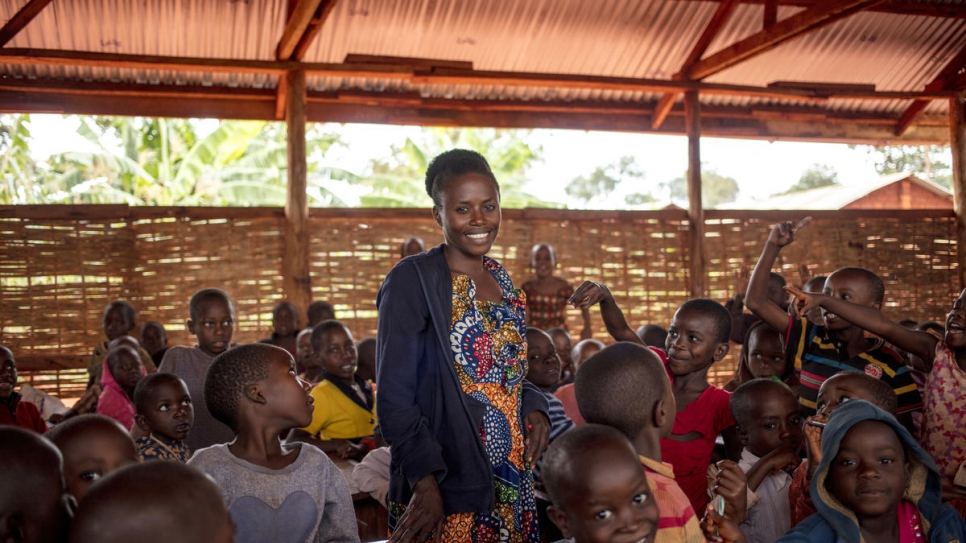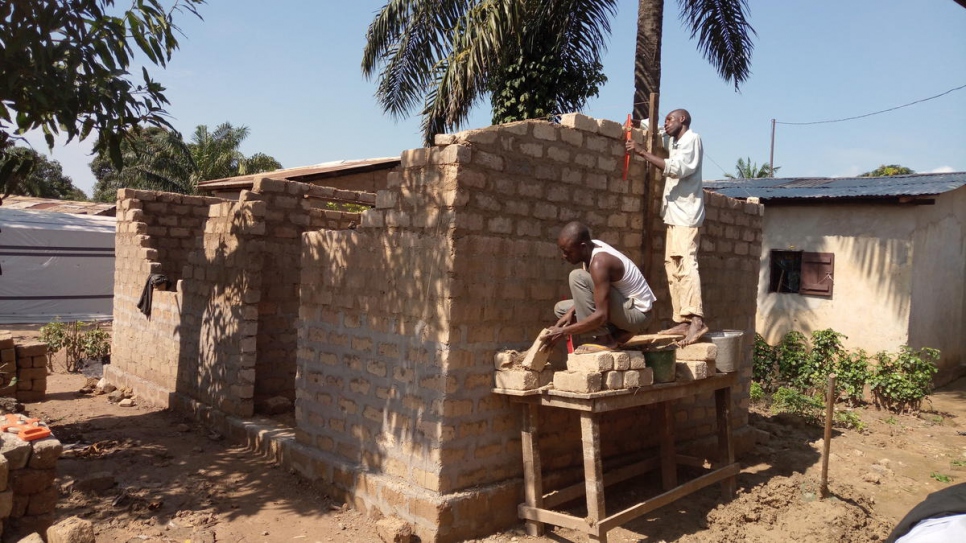Access to flexible funding is ever more important
To maintain an effective response to refugee situations around the world, increasing the percentage of unearmarked funds is more vital than ever before.
Congolese refugee Apolina Nyassa, 86, sits in front of the UNHCR shelter where she lives at Nyarugusu camp in Tanzania.
© UNHCR/Georgina Goodwin
When thousands of children, women and men fled Burundi and the Democratic Republic of the Congo for safety in western Tanzania, they spent months in dilapidated emergency shelters and tents, at the mercy of wet season rains.
But thanks to flexible funding from its donors, UNHCR, the UN Refugee Agency, was able to build 470 robust, long-lasting shelters. While the overall need is far greater, they gave the most vulnerable the security, comfort and privacy they desperately needed.
UNHCR uses the so-called ‘unearmarked’ funds in three main ways: to make an immediate difference in people’s lives by kick-starting emergency responses; bolstering efforts in underfunded and ‘forgotten’ crises, and scaling up programmes in a coordinated and efficient way.
“Unearmarked funds are vital,” said Filippo Grandi, the UN High Commissioner for Refugees, during a recent visit to Nyarugusu camp in western Tanzania, which is home to more than 150,000 refugees.
“They allow us to build shelters, to help with the education of refugees, to promote activities which bring together the host communities and the refugees,” he added.
In the East African country, needs are acute as UNHCR’s operations are severely underfunded, at just 6 per cent of the US$126 million sought.
In addition to providing the new, more environmentally friendly housing, flexible funding has allowed UNHCR to keep schools open and support projects such as farms and small businesses that benefit not just the 162,000 refugees in Tanzania, but also their host communities.
With around 68 per cent of the funding UNHCR received last year earmarked or tightly earmarked for spending in particular situations, up from about 65 per cent in 2017, flexible funding is more important than ever.
In Lebanon, which hosts around one million Syrian refugees, unearmarked funds provide cash assistance that helps cover rent, pay for education, and, during the chill winter months, help pay for shelter materials and fuel.
In the Central African Republic, where a gradual transition to peace and stability began in late 2016, flexible funds are supporting the reintegration of thousands of returning refugees and internally displaced people.
In Mauritania, meanwhile, they are supporting primary education for almost 6,000 Malian children, paying the salaries of 120 teachers and school staff working in six primary schools, two extensions and school canteens.
“I thank those donors that trust us and give us the responsibility to make the choice of where to put those funds,” Grandi said during his visit to Tanzania.
“And I want to encourage all donors to support refugees with unearmarked funding so that we may respond quickly and to those in need.”






